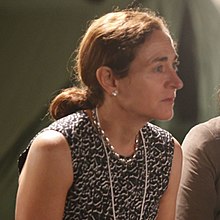
Lawrence Henry Summers is an American economist who served as the 71st United States Secretary of the Treasury from 1999 to 2001 and as director of the National Economic Council from 2009 to 2010. He also served as president of Harvard University from 2001 to 2006, where he is the Charles W. Eliot University Professor and director of the Mossavar-Rahmani Center for Business and Government at Harvard Kennedy School. In November 2023, Summers joined the board of directors of artificial general intelligence company OpenAI.

Roger W. Ferguson Jr. is an American economist, attorney and corporate executive who served as the 17th vice chairman of the Federal Reserve from 1999 to 2006. Prior to his term as vice chairman, Ferguson served as a member of the Federal Reserve Board of Governors, taking office in 1997. He was the first African-American vice chairman. After leaving the Fed, he served as president and CEO of the Teachers Insurance and Annuity Association of America (TIAA) from 2008 to 2021. Ferguson has also been appointed to the board of directors of several companies including Alphabet.

Jonathan Adair Turner, Baron Turner of Ecchinswell is a British businessman and academic who was Chairman of the Financial Services Authority during the 2007–2008 financial crisis and the Great Recession, serving from September 2008 until its abolition in March 2013. He is a former chairman of the Pensions Commission and the Committee on Climate Change, as well as a former Director-General of the Confederation of British Industry. He has described himself in a BBC HARDtalk interview with Stephen Sackur as a 'technocrat'.

Rajat Kumar Gupta is an Indian-American business executive who, as CEO, was the first foreign-born managing director of management consultancy firm McKinsey & Company from 1994 to 2003. In 2012, he was convicted of insider trading and spent two years in prison. Gupta was a board member of corporations including Goldman Sachs, Procter & Gamble and American Airlines, as well as an advisor to non-profit organizations such as the Bill & Melinda Gates Foundation and The Global Fund to Fight AIDS, Tuberculosis and Malaria. He is the co-founder of the Indian School of Business, American India Foundation, New Silk Route and Scandent Solutions.
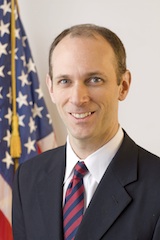
Austan Dean Goolsbee is an American economist and writer. He is the president of the Federal Reserve Bank of Chicago. Goolsbee formerly served as the Robert P. Gwinn Professor of Economics at the University of Chicago's Booth School of Business. He was the chairman of the Council of Economic Advisers from 2010 to 2011 and a member of President Barack Obama's cabinet. He served as a member of the Chicago Board of Education from 2018 to 2019.
At the micro-economic level, deleveraging refers to the reduction of the leverage ratio, or the percentage of debt in the balance sheet of a single economic entity, such as a household or a firm. It is the opposite of leveraging, which is the practice of borrowing money to acquire assets and multiply gains and losses.
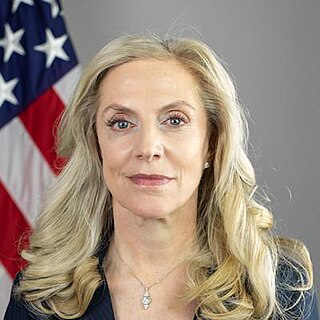
Lael Brainard is an American economist who served as the 14th director of the National Economic Council from 2023 to 2025. She previously served as the 22nd vice chair of the Federal Reserve between May 2022 and February 2023. Prior to her term as vice chair, Brainard served as a member of the Federal Reserve Board of Governors, taking office in 2014. Before her appointment to the Federal Reserve, she served as the under secretary of the treasury for international affairs from 2010 to 2013.

Brian Christopher Deese is an American economic and political advisor who was the 13th director of the National Economic Council, serving under President Joe Biden.

Karen Gordon Mills is an American businessperson and former government official who served as the 23rd Administrator of the U.S. Small Business Administration (SBA). She was nominated by President-elect Barack Obama on December 19, 2008, confirmed unanimously by the Senate on April 2, 2009, and sworn in on April 6, 2009. During her tenure, her office was elevated to the rank of Cabinet-level officer, expanding her power on policy decisions and granting her inclusion in the President's cabinet meetings. On February 11, 2013, she announced her resignation as Administrator and left the post on September 1, 2013.
The Presidential Task Force on the Auto Industry was an ad hoc group of United States cabinet-level and other officials that was formed by President Barack Obama to deal with the financial bailout of automakers Chrysler and General Motors.
Helen Marion Nugent is a leading Australian company director, businesswoman and former academic.
Rakesh Mohan is an Indian economist and former Deputy Governor of Reserve Bank of India. He is the Vice Chairperson of Indian Institute for Human Settlements. He was appointed in November 2012 as an executive director of the IMF for a three-year term, and in April 2010, he joined Nestlé India, as a non-executive director. He is currently a part time member of Prime Minister's Economic Advisory Council (PMEAC).
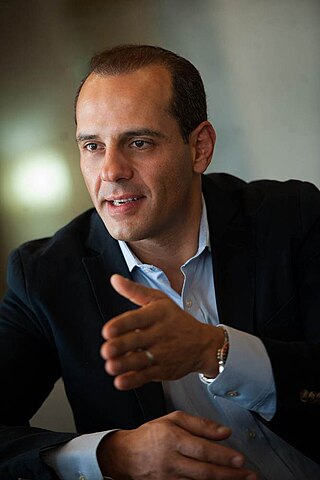
Juan Verde Suárez is a Spanish business and social entrepreneur who assisted the Joe Biden 2020 presidential campaign, as well as earlier campaigns of prominent Democrats such as President Barack Obama, Secretary of State Hillary Clinton, President Bill Clinton, Vice President Al Gore, Senator John Kerry, and Senator Ted Kennedy. He is currently a member of the President's Export Council, an advisory body to the White House on international trade and U.S. competitiveness in international markets, under President Biden.
Carter Franklin Bales (1938–2019) was an American investor, asset manager, environmentalist, conservationist, philanthropist, and informal public servant. Bales co-founded NewWorld Capital Group, LLC, an environmental sector private investment firm, based in New York City and currently serves as the Chairman and Managing Partner.

Ruth Porat is a British-American business executive who is the President and Chief Investment Officer of Alphabet and its subsidiary Google, LLC and prior to that was Chief Financial Officer of the same companies from 2015 to 2024. Prior to joining Google, Porat was the Executive Vice President & Chief Financial Officer of Morgan Stanley from January 2010 to May 2015.

Phillip Lee "Phill" Swagel is an American economist who is currently the director of the Congressional Budget Office. As Assistant Secretary of the Treasury for Economic Policy from 2006 to 2009, he played an important role in the Troubled Asset Relief Program that was part of the U.S. government's response to the financial crisis of 2007–08. He was recently a Professor in International Economics at the University of Maryland School of Public Policy, a non-resident scholar at the American Enterprise Institute, senior fellow at the Milken Institute, and co-chair of the Bipartisan Policy Center's Financial Regulatory Reform Initiative.
Ellen Hughes-Cromwick is an American economic advisor serving as a senior economist at the University of Michigan Energy Institute. She previously served as the chief economist for Ford Motor Company for over 18 years, and oversaw the company through the 2008 financial crisis. Hughes-Cromwick has been involved with the National Association for Business Economics for over a decade, and served as the association's president from 2007 to 2008.
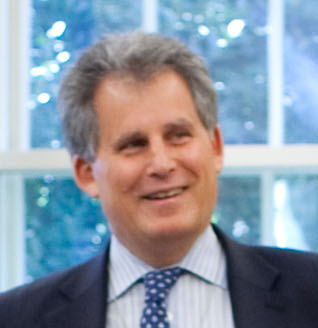
David Lipton is an American economist who served as the Acting Managing Director of the International Monetary Fund from July 2, 2019, following Christine Lagarde's nomination as President of the European Central Bank, until Kristalina Georgieva was appointed in the office on October 1, 2019. Prior to this, Lipton had been serving as the IMF's First Deputy Managing Director since September 2011. Lipton has been featured in, and interviewed by, numerous publications including The Financial Times, Euromoney, Bloomberg News, and The Guardian.

James M. Manyika is a Zimbabwean-American academic consultant, and business executive. He is currently a Senior Vice President at Google-Alphabet and a member of the senior leadership team. He is also known for his research and scholarship into the intersection of technology and the economy, including artificial intelligence, robotics automation, and the future of work. He is Google's first Senior Vice President of Technology and Society, reporting directly to Google CEO Sundar Pichai. He focuses on "shaping and sharing" the company's view on the way tech affects society, the economy, and the planet. In April 2023, his role was expanded to Senior Vice President for Research, Technology & Society and includes overseeing Google Research and Google Labs and focusing more broadly on helping advance Google’s most ambitious innovations in AI, Computing and Science responsibly. He is also Chairman Emeritus of the McKinsey Global Institute.

Brent Neiman is an American academic, economist, and government official who serves as the acting assistant secretary of the Treasury for International Finance and Development at the United States Department of the Treasury in the Biden Administration.
